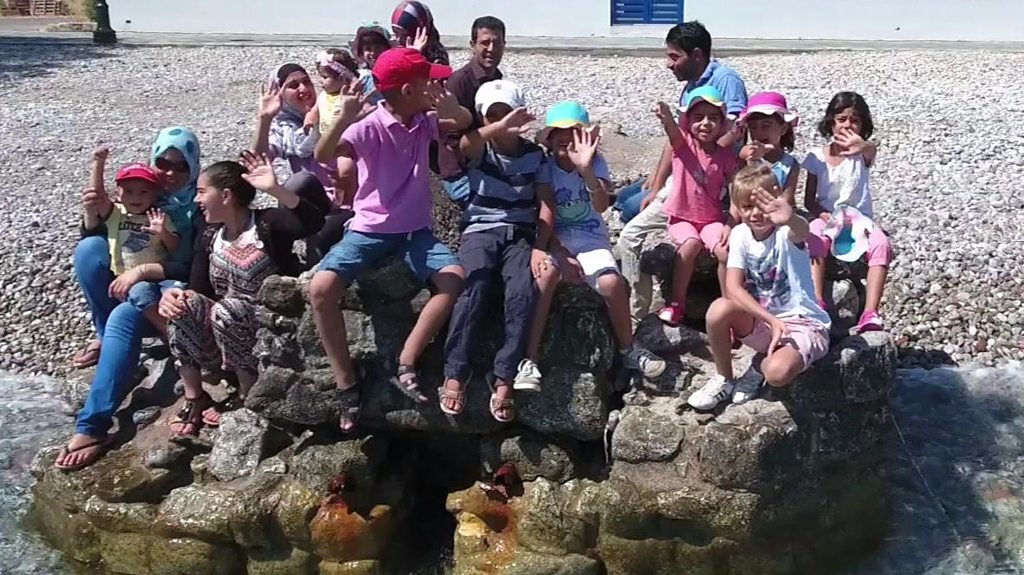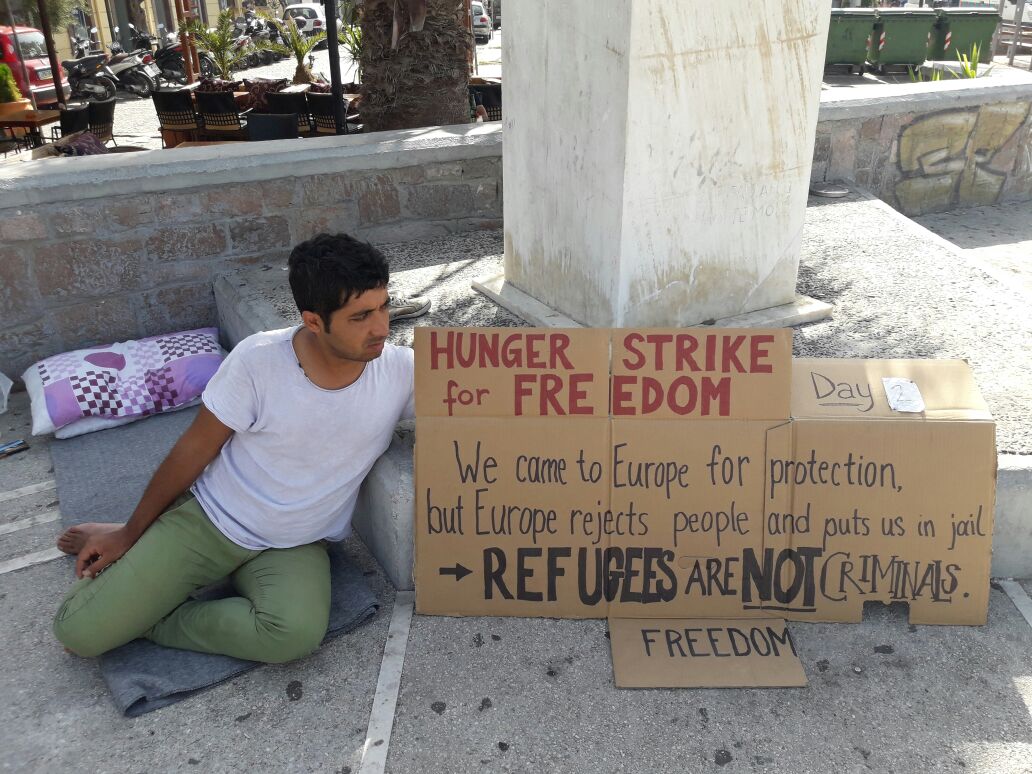The Guardian | 23.06.2017
The derelict City Plaza hotel in Athens was taken over by activists in 2016. Since then, it has housed refugees without a cent of government funding
Molly Crabapple
On 26 April 2016, the same month the EU-Turkey deal trapped 60,000 refugees in Greece, migrant solidarity activists broke the locks on City Plaza, a shuttered hotel in Athens’ anarchist Exarchia neighborhood, and gave 400 stranded people a home. Over the next year, City Plaza grew into the best known of over a dozen squats that house refugees in Greece’s crisis ravaged capital. It has been covered by Time, Al Jazeera and the New York Times.Volunteers pass through from all over Europe.
City Plaza boasts a clinic, a delicious cafeteria, language classes, a café. Families live in private rooms. Some have jobs. Their kids attend Greek schools. Most of the work to maintain City Plaza is done, and decisions made, by its residents, who hail from a dozen countries and abide by a behavior code that has zero tolerance for sexism, racism or abuse.
Weiterlesen »


